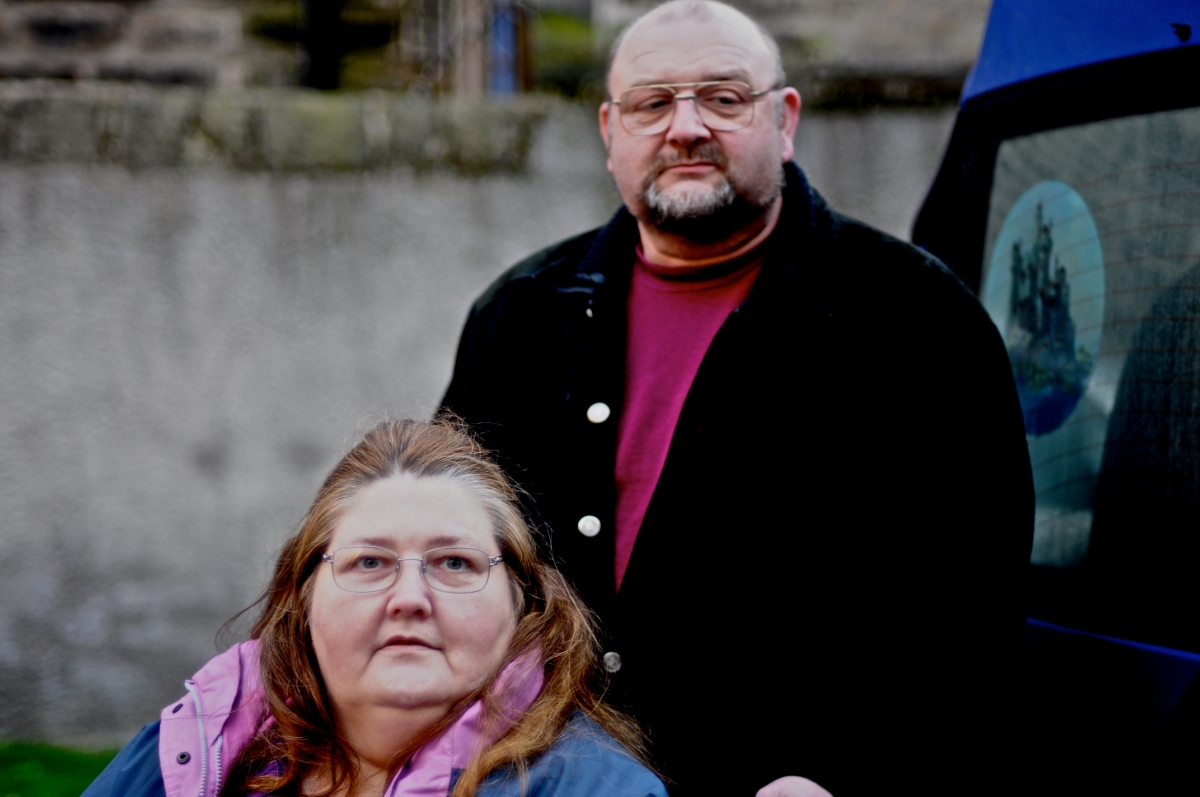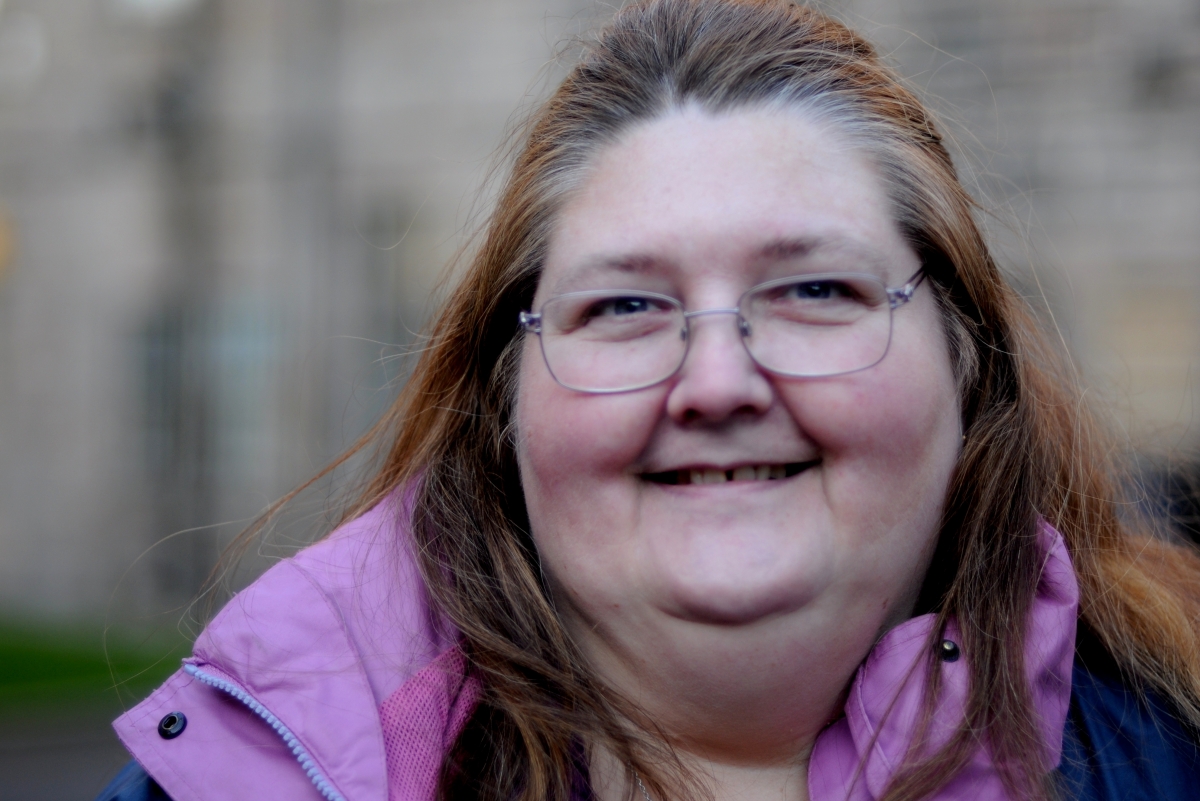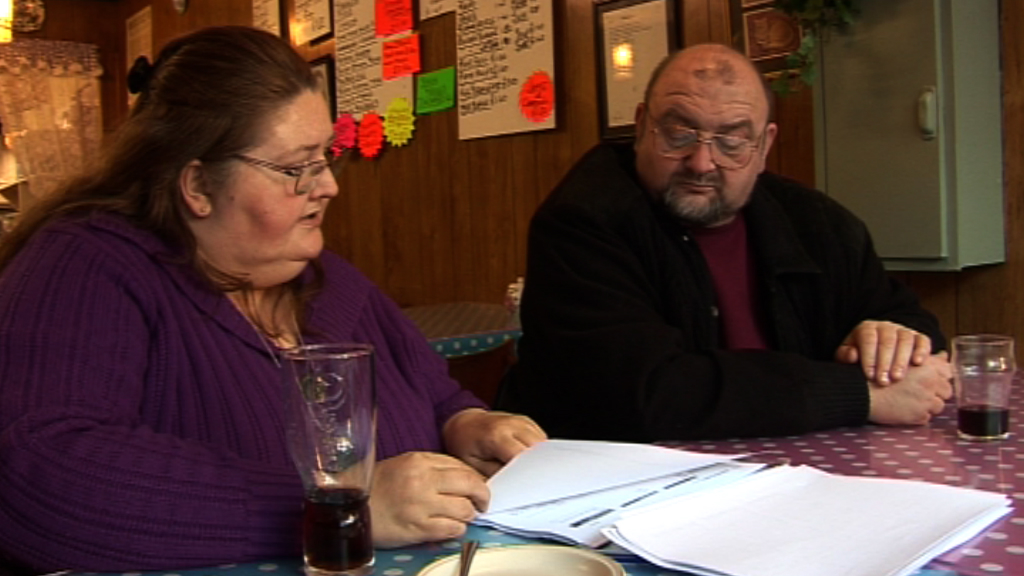Fiona, 48, and David, 51, live in a small village near Perth in Scotland. Due to their disabilities, they have both been unable to work for many years and have mounted up debts. Now, along with most disabled people, the couple are likely to face a review of their benefits under the new welfare reforms that could cut their income.
Meet Fiona and David in the following three videos recorded in early 2012 and find recent updates at the end of the page.
© 2012. All films are the copyright of the PSE: UK project and must not be reproduced, posted or downloaded. The films were produced for The Open University by Angel Eye Media; filmed and directed by Gabi Kent and researched by Stuart Brown.
Family background (2012)
We are petrified about the new reviews . . . if it's less money then we just wouldn't manage. We couldn't. I don't know what we would do.
Fiona, on disability benefits, Perth, Scotland
David and Fiona both worked for many years, David as a technical instructor and Fiona as a school care assistant. Fiona first developed nerve damage and disc problems in her back in 1998 and now uses a wheelchair. David has osteoarthritis and a number of other health conditions, including memory loss. He is now Fiona’s full-time carer. Fiona does some voluntary work each week for local disability charities, which she greatly values.
With increased living costs due to their disabilities and unable to work any longer, Fiona and David ended up in debt. In 2009, David’s disability benefits were reviewed and reduced, which caused them further financial problems. Six months later, following an appeal, his income was increased, but not backdated. They now face debt repayments of £37.50 per week.
The couple prioritise running a car large enough for a wheelchair, as without it they couldn’t get to the shops. They can’t afford Christmas or birthday presents, and find it hard to heat their home adequately. Much of their furniture is in a state of disrepair.
They have two sons, now grown-up. Both sons are in work, one is in the army and the other is the manager of a local store.
Policy background (2012)
Disability benefit changes
Disabled households are especially vulnerable to poverty, and are being significantly affected by the complete restructuring of disability benefits (see Welfare Reform Bill passed).
First, disability living allowance (DLA) – currently paid as a universal benefit to 3.2 million people to cover the additional costs of disability – is being reformed. Fiona currently receives the high rate of DLA for mobility and care. From April 2013, the benefit is to be replaced by a personal independence payment, a needs-tested benefit, with need independently assessed. The stated intention is to target support on those most in need, with all working-age claimants to be re-assessed to decide eligibility. The expectation is that disability benefit spending will fall by one-fifth by 2017. This has proved highly controversial (see Disabled people slam government’s Disability Living Allowance reforms).
David receives incapacity benefit, along with the high rate of DLA mobility and the low rate of DLA care, and will be affected by a second element of the reforms. Since April 2011, everyone of working age in receipt of incapacity benefit is being re-assessed for a new benefit – employment support allowance (ESA). This is designed to bring more disabled people back into work or onto the lower rate of jobseeker’s allowance, even though disabled people deemed able to work have a very low chance of getting work. Others may have their benefit reduced.
The ESA has become the most commonly appealed benefit in the UK, with 8,000 tribunal cases a month for people who have been refused ESA or had their benefits reduced. To date, 40 per cent of appeals have led to the original decision being overturned (see Accuracy of work capability tests put in doubt and Protest resignation over fit-for-work test for disabled people).
Disability charities warn that when universal credit comes in 2013, couples where both partners are disabled will in many cases lose more than £100 a week (Warning over impact of universal credit on disabled people).
The Scottish Parliament, after much lobbying, is to introduce its own, separate set of reforms, yet to be determined (see The Scotsman report, ‘Holyrood will defy Westminster over 'draconian' reform of benefits’).
UPDATE (2013)
To cope we have had to cut back on the heating.
Fiona, Perthshire, Scotland
Since we filmed with Fiona and David in 2012, David has undergone an assessment for the Employment Support Allowance to replace his Incapacity Benefit. He was successful with his review and is currently receiving the same levels of benefit. In the meantime however, the couple has been ‘hit by the bedroom tax’. The ‘spare bedroom subsidy’ was introduced in April 2013 for anyone of working age, receiving housing benefit and considered to be under occupying their home.
The couple have lived in a small two bedroom council house for many years and this is where they brought up their two sons. Today, for health reasons, David uses the second bedroom as his own room to enable them both to get a better nights sleep. However, their house is considered underoccupied and since March 2013, David and Fiona's housing benefit has been reduced by £14 a week.
Fiona feels this welfare reform is particularly unfair on the poor: "When they calculate your benefits they are saying this is how much you need just to live and then they say we are going to take another £14 a week from you."
David and Fiona are also worried about the review of their Disability Living Allowance (DLA) - another aspect of Welfare reform. Both rely on DLA to be able to live independently.
As Fiona says, “All we can do is hope it will be okay’.







 PSE:UK is a major collaboration between the University of Bristol, Heriot-Watt University, The Open University, Queen's University Belfast, University of Glasgow and the University of York working with the National Centre for Social Research and the Northern Ireland Statistics and Research Agency. ESRC Grant RES-060-25-0052.
PSE:UK is a major collaboration between the University of Bristol, Heriot-Watt University, The Open University, Queen's University Belfast, University of Glasgow and the University of York working with the National Centre for Social Research and the Northern Ireland Statistics and Research Agency. ESRC Grant RES-060-25-0052.






